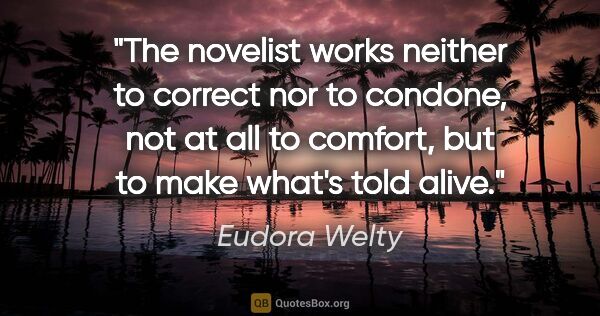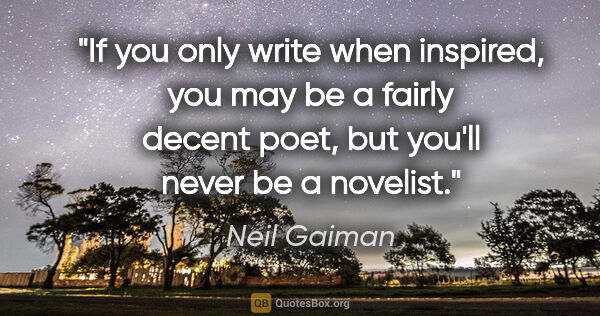Novelist Quotes (page 4)
The choice of the point(s) of view from which the story is told is arguably the most important single decision that the novelist has to make, for it fundamentally affects the way readers will respond, emotionally and morally, to the fictional characters and their actions. The story of an adultery, for instance - any adultery - will affect us differently according to whether it is presented primarily from the point of view of the unfaithful person, or the injured spouse, or the lover - or as...
David Lodge

Mr. Franzen said he and Mr. Wallace, over years of letters and conversations about the ethical role of the novelist, had come to the joint conclusion that the purpose of writing fiction was “a way out of loneliness.”
(NY Times article on the memorial service of David Foster Wallace.)
Jonathan Franzen
When, however, one reads of a witch being ducked, of a woman possessed by devils, of a wise woman selling herbs, or even of a very remarkable man who had a mother, then I think we are on the track of a lost novelist, a suppressed poet, of some mute and inglorious Jane Austen, some Emily Bronte who dashed her brains out on the moor or mopped and mowed about the highways crazed with the torture that her gift had put her to. Indeed, I would venture to guess that Anon, who wrote so many poems...
Virginia Woolf


It seems priggish or pollyannaish to deny that my intention in writing the work was to titillate the nastier propensities of my readers. My own healthy inheritance of original sin comes out in the book and I enjoyed raping and ripping by proxy. It is the novelist’s innate cowardice that makes him depute to imaginary personalities the sins that he is too cautious to commit for himself.
Anthony Burgess

Paradox is beloved of novelists. The despised savior, the humane whore, the selfish man suddenly munificent, the wise fool, and the cowardly hero. Most writers spend their lives writing about unexpected malice in the supposedly virtuous, and unexpected virtue in the supposedly sinful.
Thomas Keneally
Margaret Atwood, the Canadian novelist, once asked a group of women at a university why they felt threatened by men. The women said they were afraid of being beaten, raped, or killed by men. She then asked a group of men why they felt threatened by women. They said they were afraid women would laugh at them.
Molly Ivins